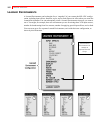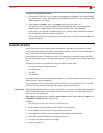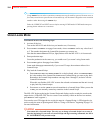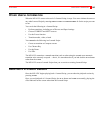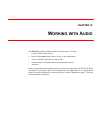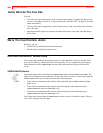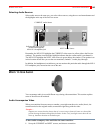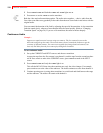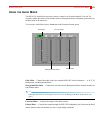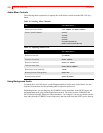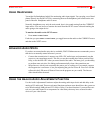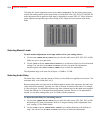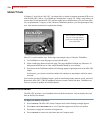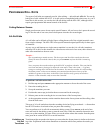
MX-4 DV USER GUIDE CHAPTER 12
110
2 Press VIDEO/AUDIO until both the VIDEO and AUDIO lights are on.
3 Press
PLAY or use the T-BAR to run the transition.
Both the video and audio transition together. The audio mixes together — that is, audio from the
first video scene fades away gradually as the audio from the next scene fades in and mixes with the
original audio.
You can control the duration of the fade by adjusting the speed of the transition. A slow transition
fades the sound slowly, whereas a fast transition fades the sound quickly. (Refer to “Changing
Transition Speed” on page 56.) If you use a Cut transition, the sound switches abruptly.
Continuous Audio
Example…
Suppose you taped a musical concert using two cameras. The first camera focuses on the
musicians and picks up the audio. The second camera focuses around the audience to get the
reactions of different listeners. You want to mix together the footage from both cameras, but
have only the audio from the first camera play through all transitions.
To use continuous audio:
1 Set up the CURRENT and NEXT sources, and choose a transition.
Assume the tape from the first camera is on channel A, and the tape from the second on chan-
nel B. Press
CUT/A to make it the CURRENT source, press NEXT/B to make it the NEXT
source.
2 Press
VIDEO/AUDIO until only the VIDEO light is on.
This tells the MX-4 DV that when the transition runs, only the video changes. For example,
press
CUT/B to cut to the video of the audience. The audio continues to come from channel A.
3 Continue pressing CUT (or using other transitions) to switch back and forth between the stage
and the audience. The audio will remain with channel A.



